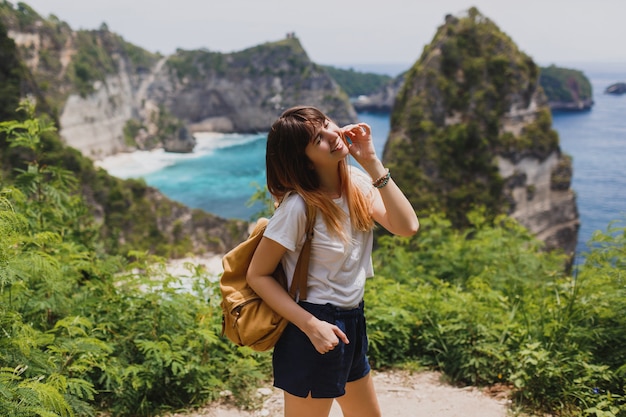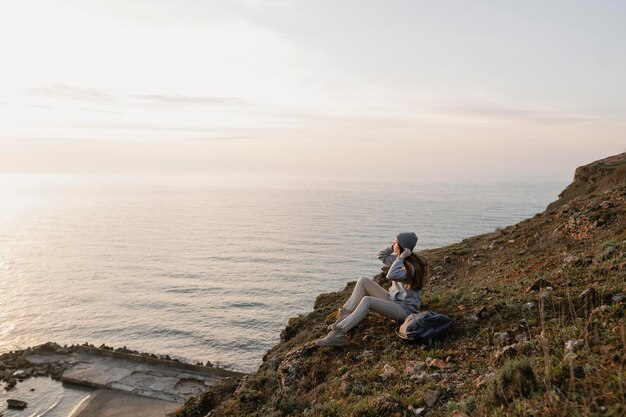
We’ve got another reflective piece for you on the joys of traveling! Today, we’re tackling the question: “Is traveling a good addiction?” The word “addiction” usually has a negative vibe, so you might be curious about where we’re headed with this. If you’ve seen our post “The Case FOR Travel [A Reflection on The Case Against Travel],” you’ll know what to expect.
According to the Cambridge Dictionary, addiction is “the need or strong desire to do or to have something, or a very strong liking for something.” By this definition, traveling can indeed be viewed as a strong desire or a passion. Whether it’s a love for a particular destination or a yearning to see the world, is this kind of addiction bad? Does traveling hurt you, or does it bring benefits to you and the places you visit?
Traveling is often called a “good addiction” because it transforms lives and changes perspectives in incredible ways. Today, we will explore why travel can be so captivating and look at how this passion can enrich and change lives for the better. Let’s jump into the fascinating world of travel!
When we hear “addiction,” we think of something negative. But if travel qualifies as an addiction, is it really bad? People travel for many reasons—fun, escaping routine, curiosity, etc. So, if this addiction isn’t harmful, what positive impacts does it have?
An article on Medium describes traveling as a compulsive act driven by an insatiable craving. I have a friend who feels his year is incomplete without a trip. He works hard, saves money, and looks forward to a real break from his routine. Is that wrong? If you’re feeling down after your trip, then this addiction is harmful. But for my friend, travel rejuvenates him, motivates him, and gives him a purpose. In such a case, can we really call this addiction bad?
Travel’s charm lies in its ability to introduce us to new places, cultures, stunning landscapes, and unique customs. Imagine walking through the Amazon rainforest, enjoying a traditional Japanese festival, or exploring the ancient city of Petra in Jordan. These experiences ignite curiosity and appreciation for the world’s diversity.
If you can afford to travel, isn’t it natural to become addicted to seeing these wonders? Reading about places and then visiting them can turn that desire into a passion for exploration.
Traveling also brings people from different cultures together, fostering understanding and empathy. Imagine going to Thailand and helping at an elephant sanctuary. You’d learn about the challenges these animals face and witness how communities unite after natural disasters. Such experiences make us more compassionate and aware of global issues. Believing that the world is a global village, travel can make this concept a reality as we connect and understand each other’s lives more deeply. Recognizing shared human experiences across the globe is a beautiful outcome of a travel addiction.
Traveling often involves navigating unfamiliar places and unexpected challenges, which helps build resilience. For instance, you might need to speak basic Mandarin to order food in Beijing or adapt to the slow pace of life in a South American village. Overcoming these linguistic, logistical, and cultural hurdles makes you stronger and more adaptable. Each trip helps you grow as a person, enhancing your adaptability and resilience.
While we enjoy traveling, it’s crucial to consider our environmental impact and adopt sustainable practices. For instance, choose eco-friendly accommodations in Costa Rica, participate in beach cleanups in Bali, or use public transport and bikes. These actions demonstrate a commitment to protecting our planet’s beauty for the future. Learning about eco-friendly practices from your travels and applying them back home can be inspiring.
Maintaining connections with loved ones while embracing a travel-focused lifestyle is important. Don’t neglect your dear ones just because you love to travel. Remember that they may not share your passion for travel. Some prefer solo trips, enjoying the freedom to explore at their own pace. So, appreciate your loved ones while you’re away, whether through video calls from a remote Himalayan village or postcards from Greece. Staying in touch can help you feel grounded amid the uncertainty of travel.
In essence, travel as a “good addiction” highlights its positive, transformative impact. By fostering empathy, resilience, and a deep appreciation for global diversity, travel offers personal growth and enriched perspectives.
With mindfulness, sustainable practices, and meaningful connections, this “good addiction” becomes a journey of self-discovery and endless enrichment. May the love for exploring inspire many to embark on adventures that not only broaden their horizons but also instill a deep respect for the world’s beauty and diversity. Safe travels, dear adventurers!







